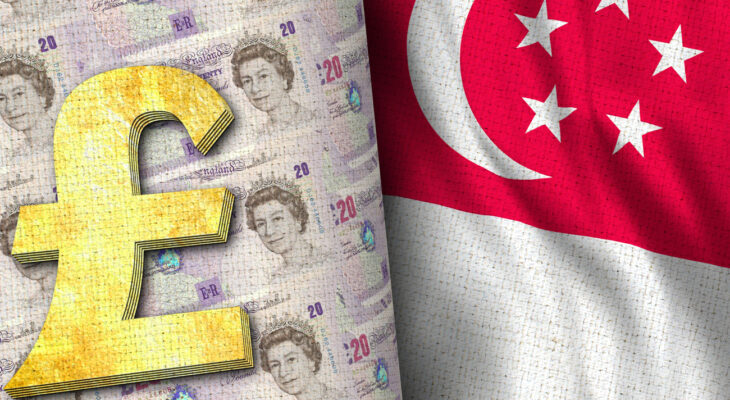
Raft of Trade Benefits and Investment for Singapore After Brexit
New Year’s Day saw two major trade developments with a strong impact on Singapore businesses – Britain’s official exit from the EU, and the start of the Singapore-UK trade agreement known as the UK-Singapore Free Trade Agreement (UKSFTA).
The UKSFTA, which provides both Singapore and UK companies with certainty and clarity in trading agreements with each other, will help bolster the trade relationship and ensures that Singapore continues to enjoy a raft of benefits for Singapore exports to Britain.
In Britain itself, though, the post-Brexit transition has seen small businesses complaining of petty annoyances, from the confiscation of lorry drivers’ sandwich lunches by EU Customs and disruption of deliveries to the possibility of food shortages. However, for Singapore and the rest of our ASEAN counterparts, we can expect mostly positive news and development.
In general, this can be clearly seen in the fact that both the UK and EU are now looking to increase trade with other parties. Indeed, in 2020 alone, ASEAN has seen increased investment activities with many multinational corporations shifting their focus and operations to the region, with uncertainties due to Brexit being one of the considerations for such a move.
Pro-business Britain
To reduce its reliance on the EU, Britain is adopting a more business-friendly attitude. The goal is to boost British exports by as much as a third of GDP, and to increase finance and insurance support for exporting businesses. For the time being, though, the UK and EU are still highly dependent on each other in the short term. Nearly half of the UK’s exports and imports are with the EU, and the UK is the largest trade partner for most EU countries. However, London has long expressed interests to send a strong signal that it wants to trade more with markets other than the EU over the long term.
ASEAN, with a combined population of almost 650 million in 2018, is seen as one of the emerging regional economies and has been identified by businesses in the UK as a region of opportunities. In fact, with a projected annual growth rate of over 5.5 percent per year, the ASEAN economy is predicted to overtake the EU and Japan to become the fourth biggest in the world by 2030. With its prime location among major trade routes near the South China Sea, it is recognised as an international hub in the cross-border movement of people, goods, and services.
The UK has long been the second largest investor in ASEAN and a major exporter to the region. To date, more than 25,000 British companies are exporting to ASEAN countries, making this region the second-largest UK export destination after the United States.
The official UK Mission to ASEAN states that it “aims to deepen its engagement with ASEAN, building on existing collaboration and exploring new ways to collaborate with the organisation and its member state.” According to the British Office for National Statistics, UK-ASEAN trade was at a ten-year high of £37.2 billion in 2018, including £16.7 billion worth of UK exports to ASEAN.

2021 to be a historic year
Earlier in November 2020, the British Foreign Secretary submitted the UK’s application to become an ASEAN Dialogue Partner to join other countries including Australia, India, and Japan in areas of common interests. In a virtual meeting held on December 7, 2020, Foreign Secretary Dominic Raab said: “We want 2021 to be a historic year for UK-ASEAN relations, and we look forward to building back better and greener together after the pandemic.”
Topics discussed in the virtual meeting included the importance of collaboration on COVID-19 vaccine production and distribution, as well as the shared challenge in tackling climate change and how the UK and ASEAN can strengthen ties by working together to build back a more sustainable global economy after the pandemic.
As for the EU, it has shown its willingness to cooperate with ASEAN by beginning bilateral negotiations with individual members of ASEAN as well as region-to-region agreements. In recent times, the EU has also inked bilateral FTAs with both Singapore and Vietnam.
Comprehensive and progressive trade pacts
The UK has also recently entered into FTA with the majority of nations in the Comprehensive and Progressive Agreement for Trans-Pacific Partnership (CPTPP), of which Singapore is a member. This entry holds much value for the UK as it is expected to give its businesses wider access to a market worth £9 trillion.
The UK is also eyeing to expand its trade partnership and supply chains through ASEAN and CPTPP nations. Five of the CPTPP members – Japan, Canada, Australia, New Zealand and Singapore – already have strong trading ties with the UK. The various FTAs with the CPTPP nations are seen as a move by the UK towards applying for CPTPP membership, which is expected to happen early this year.
Launch pad for British tech investment
Regardless of Brexit, one little-known positive development for Singapore is that top British tech unicorns see Singapore as a launch pad and have based their operations here, given the hassle-free processes and easy market access to the rest of ASEAN.
With the Singapore government acknowledging the inevitable ingress of fintech services, the Monetary Authority of Singapore is setting up a fund and a hub to experiment and launch financial products and services with an in-built contingency plan to contain failure. With high digital penetration and a world-class digital infrastructure, the e-commerce sales in Singapore accounts for 3 percent of retail sales. All these gaps are on the anvil to be taken up by British entrepreneurs, who have been looking to explore the fintech market beyond the EU.
Cautionary tale on Brexit
However, with a weakening British Pound (GBP) as market investors adopt a wait-and-see approach to the future developments of Brexit, a cautionary tale also emerges. Foreign exchange markets saw a short-term negativity impacting investment flows, which while not desirable, is expected to stabilise soon. Following Brexit, the GBP has sharply declined against the Singapore dollar and this has disrupted the equilibrium by increasing the cost of trade and investment between the two countries, especially for British exporters looking to use Singapore as a transit hub to other regional countries.
Tourism, which is a major source of revenue for Singapore, is one sector that has taken a hit. A weak GBP has resulted in more outbound tourists from Singapore to the UK, and this has resulted in a decline of revenues for tourism-related sectors in Singapore, including businesses in hospitality and aviation.
In the immediate to mid-term, the potential continuing depreciation of the British currency will affect the profitability of Singapore exporters who have their earnings denominated in GBP. Brexit may also impact the flow of foreign funds into Singapore businesses as investors could be taking a wait-and-see approach, and continuing volatility in exchange rates and reduced access to the EU markets has further dampened business sentiments.

UK and Singapore trade pact
On balance, however, businesses in Singapore can expect more positive than negative developments arising out of Brexit. Trade flows between the UK and Singapore are expected to be relatively unscathed from any harsh impacts of Brexit and strengthen over time. Singapore, being an open economy that is driven by trade in goods and services, and with an extensive network of 25 implemented agreements, stands to benefit with the UKSFTA which came into force on January 1, 2021.
This pact provides Singapore and British companies with the same benefits that they have been receiving under the European Union-Singapore Free Trade Agreement (EUSFTA) which ceased to apply for UK-Singapore trade. Tariffs will continue to be reduced or eliminated according to the EUSFTA tariff schedule for Singapore goods exports to the UK.
According to UKSFTA, Asian food products made in Singapore continue to be able to enter the UK tariff-free, up to a combined annual quota of 350 tons. Under the flexible rules of origin applicable to such Asian food products, “there is no need to ensure that the ingredients used were grown or produced in Singapore. All that is necessary is to show that the products were made in Singapore.”
Non-tariff barriers are reduced across major sectors, such as electronics; motor vehicles and vehicle parts; pharmaceutical products and medical devices; and renewable energy generation.
Other benefits include increased access to respective services and government procurement markets, and enhanced protection of intellectual property rights.



















